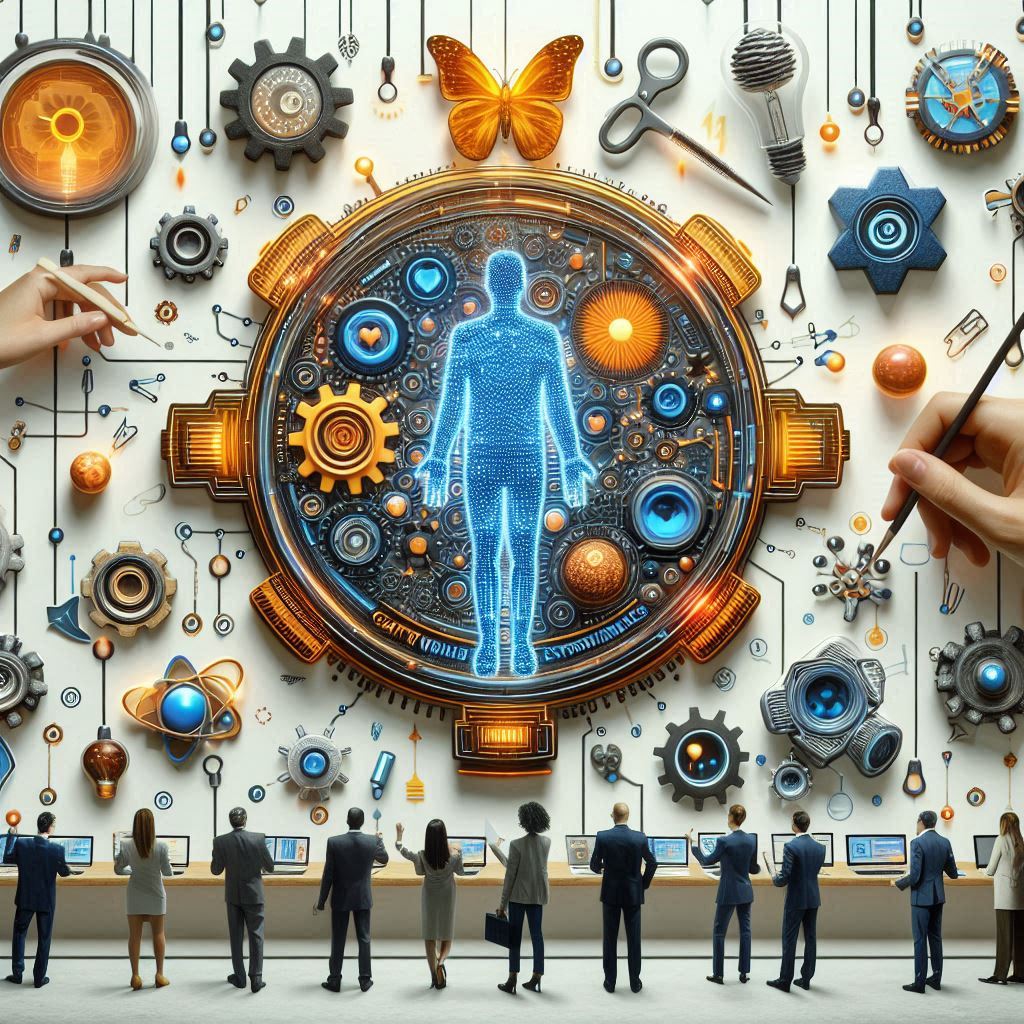In today’s competitive digital landscape, personalization is no longer a luxury but a necessity. Personalization strategies allow businesses to tailor their marketing efforts to meet the unique needs and preferences of individual customers, creating more engaging and effective interactions. As we move into 2025, the importance of personalization continues to grow, driving better customer experiences, increased loyalty, and higher conversion rates. This guide explores the key aspects of personalization strategies, highlights the latest trends, and provides actionable insights to help your business stay ahead of the curve.
What is Personalization?
Personalization refers to the practice of customizing marketing messages, content, and experiences based on individual customer data and preferences. By leveraging data and technology, businesses can create tailored interactions that resonate with each customer, enhancing their overall experience and increasing the likelihood of engagement and conversion.
Key Components of Personalization
- Customer Data: Collecting and analysing data on customer behaviour, preferences, and interactions.
- Segmentation: Dividing your audience into distinct groups based on shared characteristics or behaviours.
- Tailored Content: Creating content that is relevant and personalised to each customer segment or individual.
- Dynamic Experiences: Offering real-time customisation of content and experiences based on user interactions.
The Importance of Personalization in 2025
As we approach 2025, personalization has become a crucial component of successful digital marketing strategies. Here’s why personalization is so important:
1. Enhanced Customer Experience
Personalization significantly improves the customer experience by making interactions more relevant and engaging.
- Relevance: Customers are more likely to engage with content and offers that are tailored to their interests and needs.
- Convenience: Personalised experiences make it easier for customers to find what they’re looking for and make informed decisions.
2. Increased Customer Loyalty
Personalization helps build stronger relationships with customers, leading to higher loyalty and retention rates.
- Trust: Customers feel valued when they receive personalised attention and offers.
- Engagement: Tailored experiences keep customers engaged and connected with your brand.
3. Higher Conversion Rates
Personalised marketing efforts often result in higher conversion rates and increased sales.
- Targeted Offers: Personalised offers and recommendations are more likely to lead to conversions.
- Optimised Journeys: Tailored experiences can guide customers more effectively through the sales funnel.
4. Better Data Utilization
Personalization strategies enable businesses to make the most of their customer data.
- Insightful Analytics: Data-driven personalisation provides valuable insights into customer behavior and preferences.
- Optimised Marketing: Leveraging data allows for more effective targeting and resource allocation.
5. Competitive Advantage
In a crowded market, personalisation can set your brand apart from the competition.
- Unique Experiences: Offering personalised interactions can differentiate your brand and attract more customers.
- Adaptability: Personalization allows you to quickly adapt to changing customer preferences and trends.
Latest Trends in Personalization for 2025
To stay ahead in the rapidly evolving digital landscape, businesses must keep up with the latest personalization trends. Here are the top trends to watch for in 2025:
1. AI-Powered Personalization
Artificial Intelligence (AI) is revolutionising personalisation by providing advanced capabilities for data analysis and content customisation.
- Machine Learning Algorithms: AI can analyse large volumes of data to identify patterns and predict customer behaviour.
- Real-Time Personalization: AI enables real-time adjustments to content and recommendations based on user interactions.
2. Hyper-Personalization
Hyper-personalisation takes personalisation to the next level by delivering highly specific and individualised experiences.
- Individual Profiles: Create detailed profiles for each customer to offer more precise recommendations and content.
- Behavioural Triggers: Use real-time data to trigger personalised messages and offers based on customer actions.
3. Omnichannel Personalization
Omni channel personalisation ensures a consistent and tailored experience across all customer touch points.
- Integrated Platforms: Use integrated systems to provide a seamless experience across web, mobile, email, and social media.
- Consistent Messaging: Maintain consistent personalisation efforts across all channels to reinforce your brand message.
4. Voice Search and AI Assistants
Voice search and AI assistants are becoming increasingly important in personalisation strategies.
- Voice Search Optimisation: Optimize content for voice search to deliver personalised results based on voice queries.
- AI Assistants: Leverage AI-powered assistants to provide personalised recommendations and support.
5. Privacy and Data Security
With increasing concerns about data privacy, businesses must prioritise secure and ethical use of customer data.
- Transparency: Clearly communicate how customer data is used and provide options for users to control their data.
- Compliance: Ensure compliance with data protection regulations such as GDPR and CCPA.
6. Content Personalization
Content personalisation involves tailoring content to meet the specific needs and preferences of individual users.
- Dynamic Content: Use dynamic content to display personalised messages and offers based on user data.
- Customised Recommendations: Provide personalised content recommendations based on past interactions and preferences.
Implementing Effective Personalization Strategies
Creating a successful personalization strategy involves several key steps:
1. Collect and Analyze Customer Data
Gathering and analysing customer data is the foundation of personalisation.
- Data Sources: Collect data from various sources such as website interactions, social media, email campaigns, and purchase history.
- Analytics Tools: Use analytics tools to analyze data and identify patterns and trends.
2. Segment Your Audience
Segmenting your audience allows you to tailor your messaging and content to different groups.
- Demographic Segmentation: Divide your audience based on demographic factors such as age, gender, and location.
- Behavioural Segmentation: Group customers based on their behavior and interactions with your brand.
3. Create Personalized Content
Develop content that resonates with each segment or individual.
- Relevant Messaging: Craft messages that address the specific needs and interests of your audience.
- Tailored Offers: Create personalized offers and recommendations based on user data.
4. Leverage Technology
Utilize technology to enhance your personalization efforts.
- AI and Machine Learning: Implement AI and machine learning to analyze data and deliver personalized experiences.
- Personalization Platforms: Use personalization platforms to manage and automate your personalization efforts.
5. Monitor and Optimize
Regularly monitor the performance of your personalization strategies and make adjustments as needed.
- Performance Metrics: Track key metrics such as engagement rates, conversion rates, and customer satisfaction.
- Continuous Improvement: Continuously optimize your personalization efforts based on data and feedback.
How Social Singh Can Help
At Social Singh, we specialize in developing and implementing effective personalization strategies that drive results. Our services include:
- Data Analysis and Segmentation: We help you collect and analyze customer data to create meaningful segments and profiles.
- Content Creation: We craft personalized content and offers that resonate with your audience and drive engagement.
- Technology Integration: We leverage advanced technology and AI to enhance your personalization efforts and deliver real-time results.
- Strategy Development: We work with you to develop a comprehensive personalization strategy that aligns with your business goals.
- Performance Monitoring: We provide ongoing monitoring and optimization to ensure the success of your personalization initiatives.
Ready to transform your marketing efforts with personalized experiences? Contact Social Singh today to learn how our expertise can help you create tailored interactions that drive results in 2025 and beyond!




